Community Connections
From humble beginnings to a world class program: 50 years of IT at UC
The story of Information Technology at the University of Canberra is one of transformation. Over the course of its 50-year existence, the school has gone through many changes – some small and cosmetic, and others bigger and more impactful, ultimately changing the School’s landscape to what it is now.
Its roots can be traced back to the early 1970s, when computers were gaining prevalence in society. The arrival of the Burroughs B5500, the first mainframe computer at the Canberra College of Advanced Education (CCAE), as UC was previously known, necessitated dedicated staff and paved the way for the creation of the School of Computing Studies.
By 1973, Mathematics and Statistics were added to the School of Computing Studies to create the School of Information Sciences.
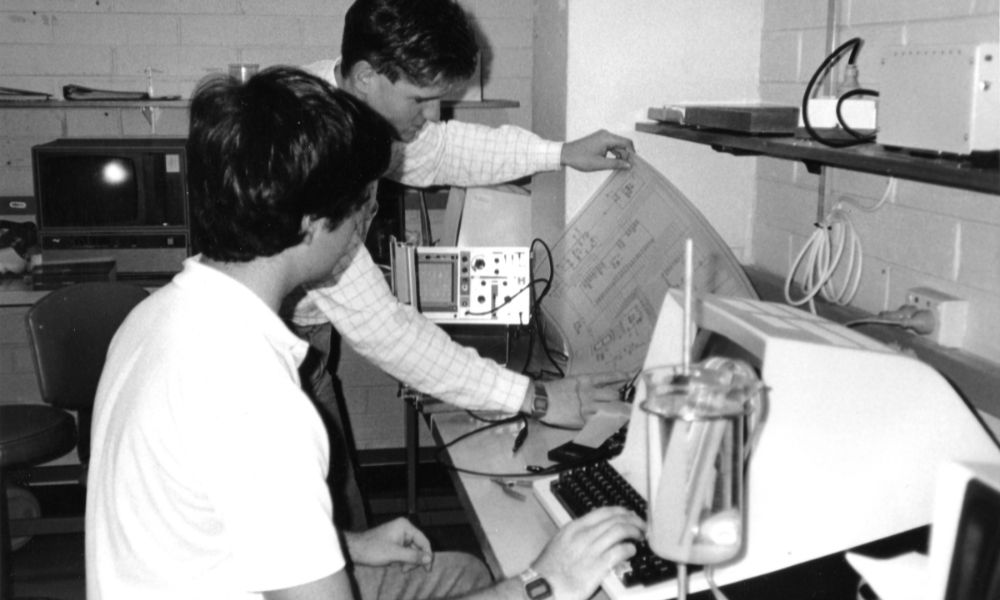
Initially the School had strong ties to the federal government – the courses and programs they offered were deemed as Programmer in Training courses due to the public service’s need for qualified programmers.
“I undertook the computing course so I would have a qualification in my employment field, as there was no such thing as computer science/studies when I started as a professional programmer in 1963,” says alumnus Bill Egan, who completed his Graduate Diploma in Computing Studies in 1977.
Through the rest of the 1970s and the 1980s, the demand for computing courses continued to grow. The School also acquired its first microcomputers (PCs) – ERA50s and an Apple microcomputer – and by 1986, was renamed to the School of Information Sciences and Engineering. It was also during this time that the first PC lab on campus was established, initially for the use of senior students and staff.
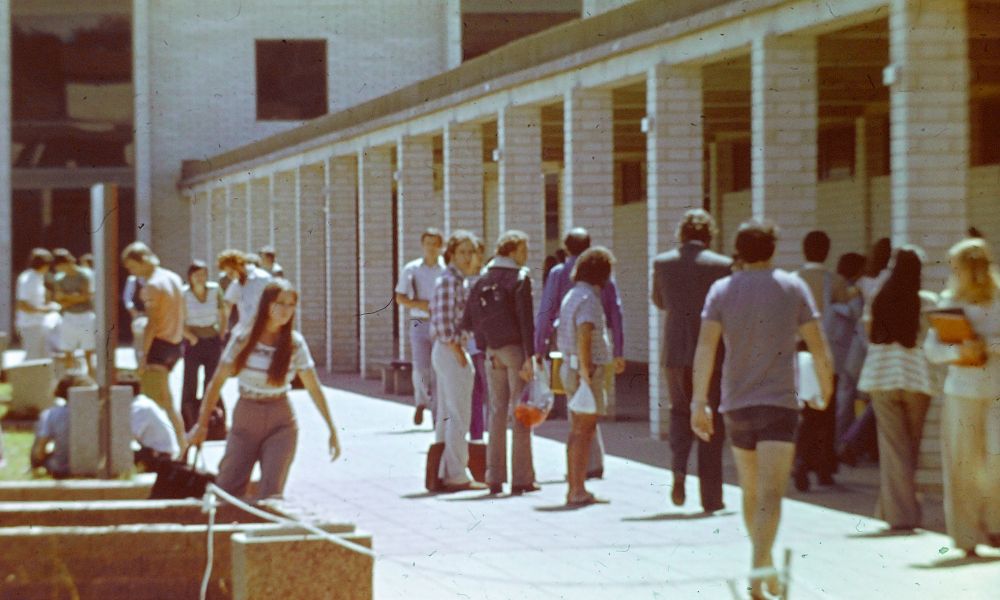
In the 1990s, the School moved to Building 11, and would remain there for nearly two decades. Its growth continued during that time, aided by the formation of some innovative courses such as the Basic Information Systems, which was more about using and conceptualising IT, rather than introductory programming.
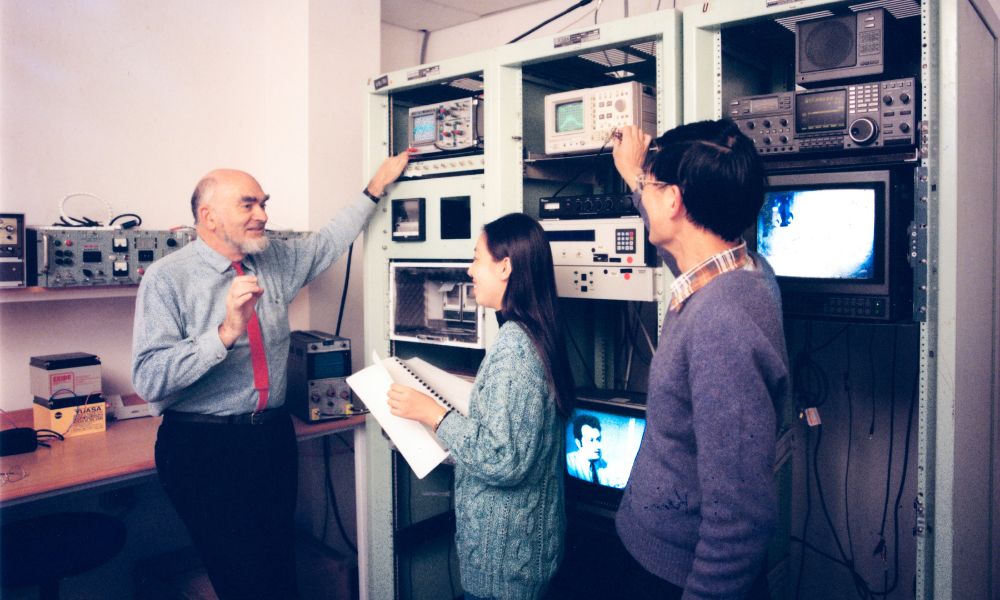
By the time the 2000s arrived, the School became the Faculty of Information Science and Engineering and with a new Head of School leading the way, there was an emphasis on expanding program offerings to boost enrolment.
“The challenge at that time, with all the rapid changes in IT, was trying to find a position for the University within the IT world,” says Professor Dharmendra Sharma, who was Head of School from 2004 to 2007, and the Dean of the Faculty from 2007 to 2012.
“The approach we adopted focused on collaboration with industry – getting ideas, insights, and advice from the industry on where the ICT world was going. At the same time, we also kept a close watch on international trends.”
The School worked to build a program that would integrate other emerging technologies and trends in the industry. Areas of emphasis such as cyber security, data science, business informatics, and business analytics emerged. In addition, the renewed focus on international trends was crucial in building the credibility of the program to attract international students – another focus area.
“We've always believed that the quality of what we are doing was going to be defined by the quality of research we do and programs we have. We managed to build a strong reputation not only within the ACT, but also internationally – our international student numbers kept growing,” Dharmendra says.
As it evolved and continued to grow in the 2000s, there were also some developments that changed the course of the School. In the early 2010s, organisational priorities within UC led to the Faculty of Information Science and Engineering (ISE) being restructured and the different disciplines within it being redistributed to different faculties.
With the integrated approach of the 2000s, this restructure meant the breakup of some programs and inevitably, the departure of staff members.
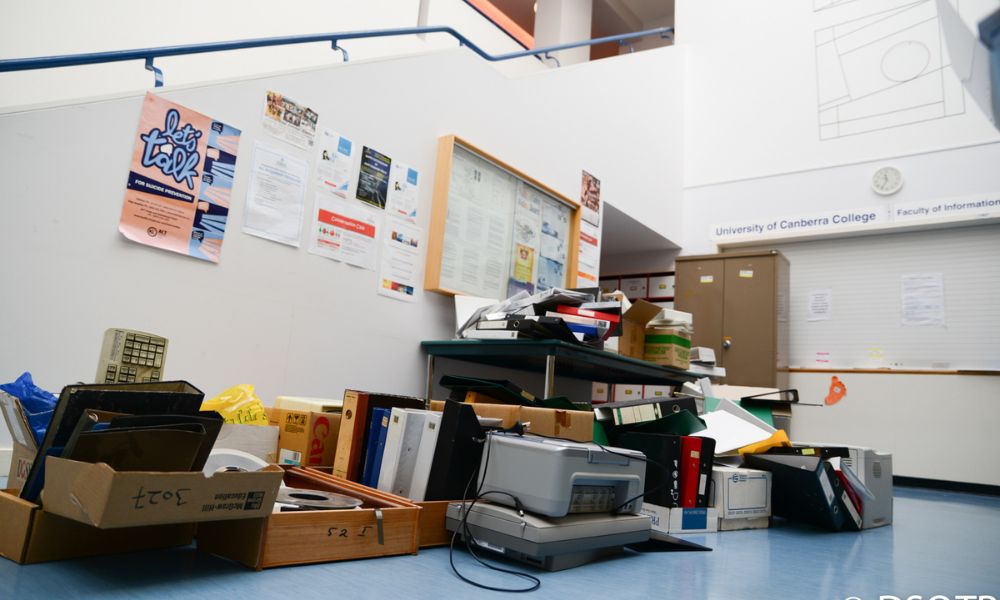
“As a faculty, our integrated approach meant that we were collegial and collaborative in our courses as well. To divide the faculty up was a challenging process,” recalls Dharmendra.
Jason Weber, the School’s current IT Manager who has been with UC since 2006, recalls the years that followed as a transition period for the School, with changing leadership making it hard to establish its identity and rebuild its programs.
Things changed in 2018 when the Faculty of Science and Technology (SciTech) was formed, and with that, the Information Systems program, which had been assigned to the Faculty of Business, Government and Law , made its way back to the School. This paved the way for the School in its current form – the School of Information Technology and Systems.
“When Janine Deakin became the Executive Dean of SciTech, we felt a sense of stability and support from Faculty leadership similar to the days of ISE,” says Jason.
“She’s worked hard to understand what we do – so we’ve seen things like the Advanced Engineering Lab (27A) come to fruition – if we need equipment, space or staff, she’s very supportive in providing these resources for us.”
As the School continued to rebuild , the perseverance and resolve of a core group of staff members carried it through a new set of challenges. The current Head of School, Kumudu Munasinghe, who has been in the role since 2020, witnessed this resilience manifest during the COVID-19 pandemic.
“We had to manage not one, but two lockdowns and the sudden switch to online teaching, and in those times, we still had the responsibility to provide our students and researchers with the best teaching and supervision,” recalls Kumudu.
“Through that period, we still managed to be successful in educating our students and we even experienced growth in student numbers – and that’s only possible because of the collective efforts of our staff.”
The commitment to its students has been reflected in the quality of graduates the School has produced. Dharmendra beams with pride as he talks about the employability and the success of the School’s alumni.
“Our graduates are establishing their own companies, working in big firms, providing leadership to the communities to which they belong, and are being recognised as distinguished alum. These are great indicators that we are doing the right things,” he says.
As the IT landscape evolves in the future, the School of Information Technology and Systems at UC will continue to grow and adapt.
Staff will come and go, but the collegial environment that has been built throughout the years will remain for decades to come, shaping the education of the next generation of students.
“The future is not only about what we do, it's also how we are informed by the environment we are in. We have to respond to it and be ahead of the game, and I am confident that with what has been built here over the years, we will be able to respond,” says Dharmendra.
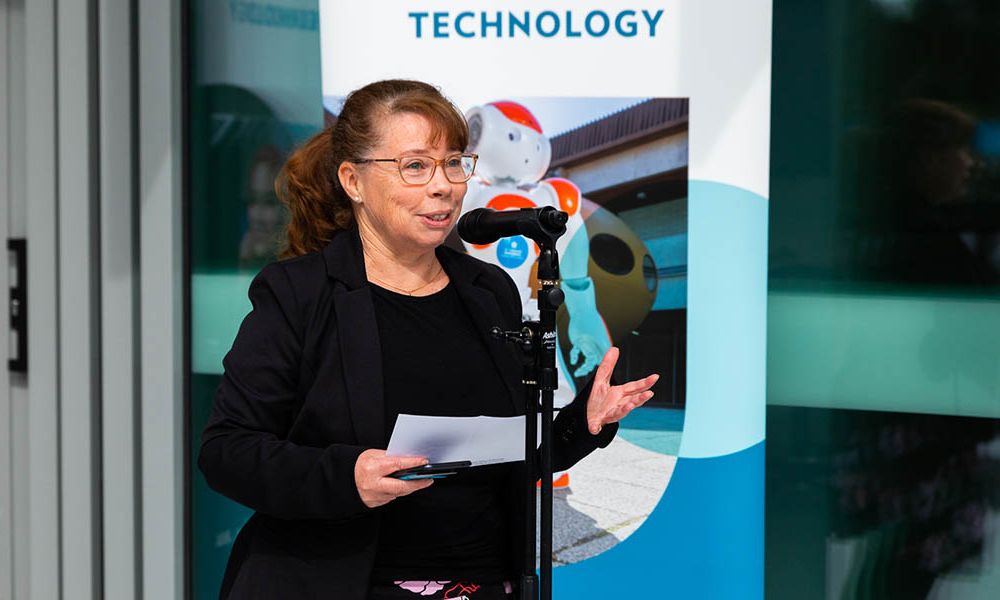
Janine offers a similar view on the School’s future, pointing to major industry partnerships and attracting talented researchers as key driving forces that will continue progress.
“We are currently in a strong position as student enrolments have steadily increased over the past four years. Two major industry partnerships – the University of Canberra-Cisco cybersecurity initiative and Open Source Institute – offer our students and staff unique, hands-on opportunities to develop innovative solutions to real-world challenges,” she says.
“In 2024, we will also be welcoming new talent to the School, including Research Chairs aligned with our partnerships, who will help the School continue to evolve and thrive in this continuously changing world of technology.”
Words by Mike Verzosa, photos supplied.